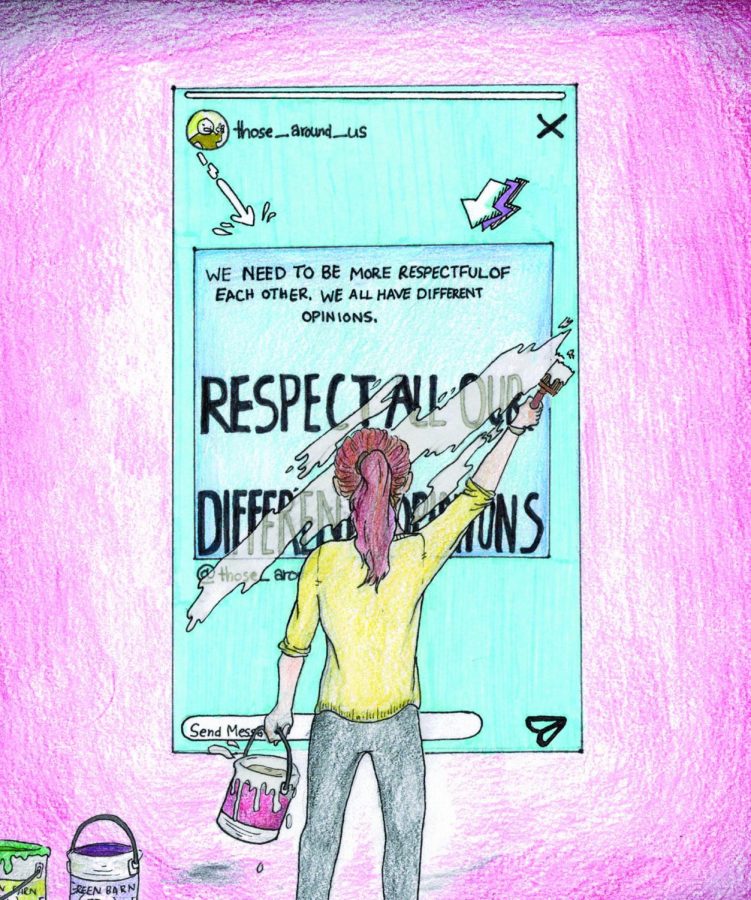I can’t respect your opinion
When I was 6 years old, my sister and I painted a picture of a barn. Once it was time to paint the barn doors, she dipped her brush in the green paint, and I dipped mine in purple. We locked eyes and argued over what color our barn door should be.
Despite our bickering, after a few minutes, we set our brushes down and looked at our completed barn, displaying a green door with purple stripes.
Compromise and respect were easy to understand at a young age, as teachers and parents practically drilled these concepts into our minds.
Fast forward more than 10 years, and suddenly I find myself having more and more difficulty compromising with some of my peers. I simply can’t respect their opinions anymore.
This year has been full of unprecedented and life changing events. As the pandemic continues to shake our daily lives, a movement for racial justice has exploded across the country, all within a pivotal election year. Through all of this, my peers have become increasingly vocal on social media as they comment, repost and share their opinions about issues that the world faces.
Some peers share their ideas respectfully, while others don’t. On various occasions, students have shared racist, homophobic and xenophobic comments, targeting students walking the very same halls as me.
One alumnus’ Instagram story, which responded to a post that garnered many hateful comments, particularly struck me. This individual reposted a quote that, when summarized, said: We all have different opinions, so be respectful to each other. Ironically, this alumnus was sharing and supporting content that was used to attack the identities and views of people of color and those in the LGBTQ+ community.
Others posted similar messages, saying they would still be friends with people even if they had various disagreements.
But these “disagreements” aren’t as simple as the color of a barn door.
I can respect my peers’ opinions when it pertains to where we should get food or varying political beliefs, as long as these opinions don’t attack others. The comments surfacing on social media however, have. My friends, people who sat next to me in class and familiar faces I passed in the halls were denying the experiences, identities and voices of my peers.
When I saw students’ posts about respecting differing opinions, I began questioning the concepts of compromise and respect we were taught at a young age. How can we respect the opinions of our peers and remain friends with them if they perpetuate hateful messages to fellow students? It’s simple — we can’t.
It was easy to compromise when choosing the color of a barn door. But, when my peers invalidate the rights and identities of other students, I can’t just paint purple stripes on a green door and smile at a completed picture.
My painting is ruined.
By being friends with people who support discrimination and racism, we encourage their behavior. Some argue that we can simply enjoy the company of our friends while disagreeing with their ideas, but we can’t actively be anti-prejudiced if we continue to be friends with the voices behind prejudiced words.
So, I can still be your friend if you want strawberry ice cream instead of vanilla, but I can neither be your friend nor respect your beliefs if you attack my peers for their unique, powerful and wonderful identities.


